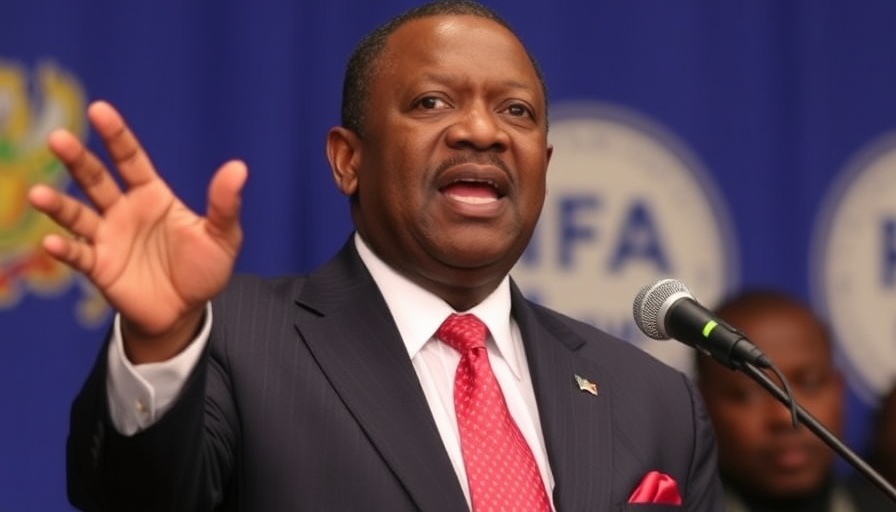
Edgar Mnangagwa: The Controversial Succession Narrative
In recent months, the political landscape in Zimbabwe has been tumultuous as President Emmerson Mnangagwa's potential successors emerge amidst whispers of instability within the ruling Zimbabwe African National Union-Patriotic Front (Zanu-PF). As the 80-year-old leader navigates the challenges of a faltering economy and an antagonistic opposition, the narrative of succession has garnered significant attention, particularly with the involvement of a notable tycoon fueling the tensions.
The Role of Business in Politics
Business interests inform the political tussle, illustrating a growing intersection between commerce and governance in Zimbabwe. The controversial tycoon, numerous reports suggest, has aligned himself with factions within Zanu-PF, potentially leveraging financial power to influence political outcomes. This phenomenon raises critical questions about the integrity of the political ecosystem—dissolving lines between economic strategy and political maneuvering. As the African economy evolves, leaders and investors must understand these nuances to capitalize on emerging trends.
Geopolitical Implications of Succession Controversies
The impending leadership struggle within Zanu-PF bears substantial implications for Zimbabwe’s foreign relations, especially against the backdrop of shifting geopolitical alliances. The interactions between Zimbabwe, China, and the European Union significantly impact trade policies and diplomatic engagements in Southern Africa, influencing the nation’s standing on the global stage. As policymakers and investors navigate these turbulent waters, recognizing the interconnectedness of local politics and international relations will be vital.
Investor Sentiment Amidst Uncertainty
Understanding the implications of Zanu-PF's internal struggles on Zimbabwe's financial markets is crucial for investors. Political risks often reflect on market performance, and as the nation grapples with governance challenges, maintaining robust engagement in the region becomes imperative. Business leaders must adopt a proactive approach to adapt their strategies in response to these political developments, ensuring their investments are resilient to potential upheavals.
Conclusion: Making Sense of Zimbabwe's Future
The succession saga in Zimbabwe offers a window into the complexities of African politics and its influence on economic stability. As the nation stands at a crossroads, the actions of historical figures and emerging political players will shape not just Zimbabwe’s future, but also the broader context of Africa's role in the global economy. Stakeholders must remain vigilant and informed, keeping abreast of developments that can pivot the narrative of governance and economic engagement on the continent.
 Add Row
Add Row  Add
Add 


 Add Row
Add Row  Add
Add 

Write A Comment